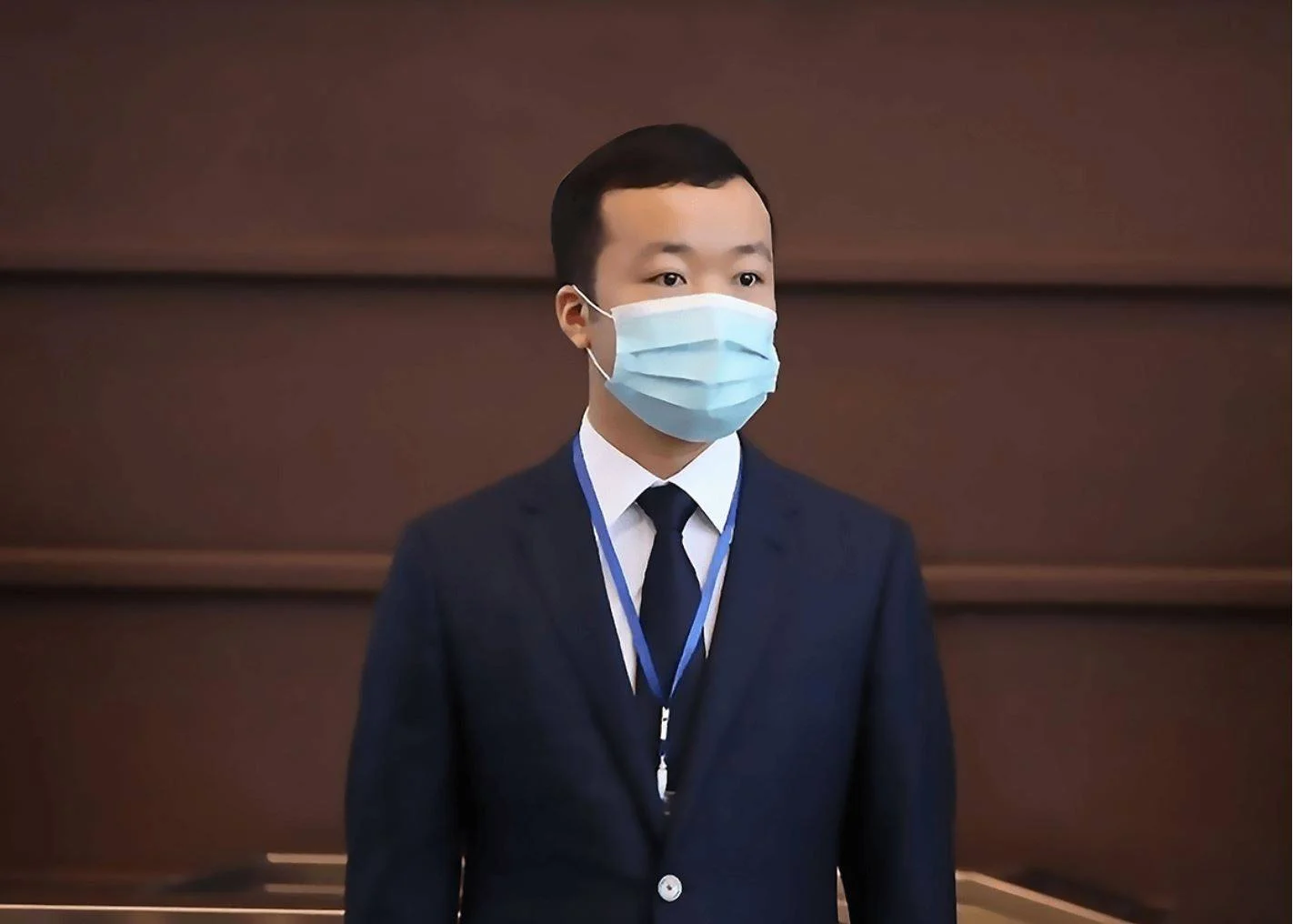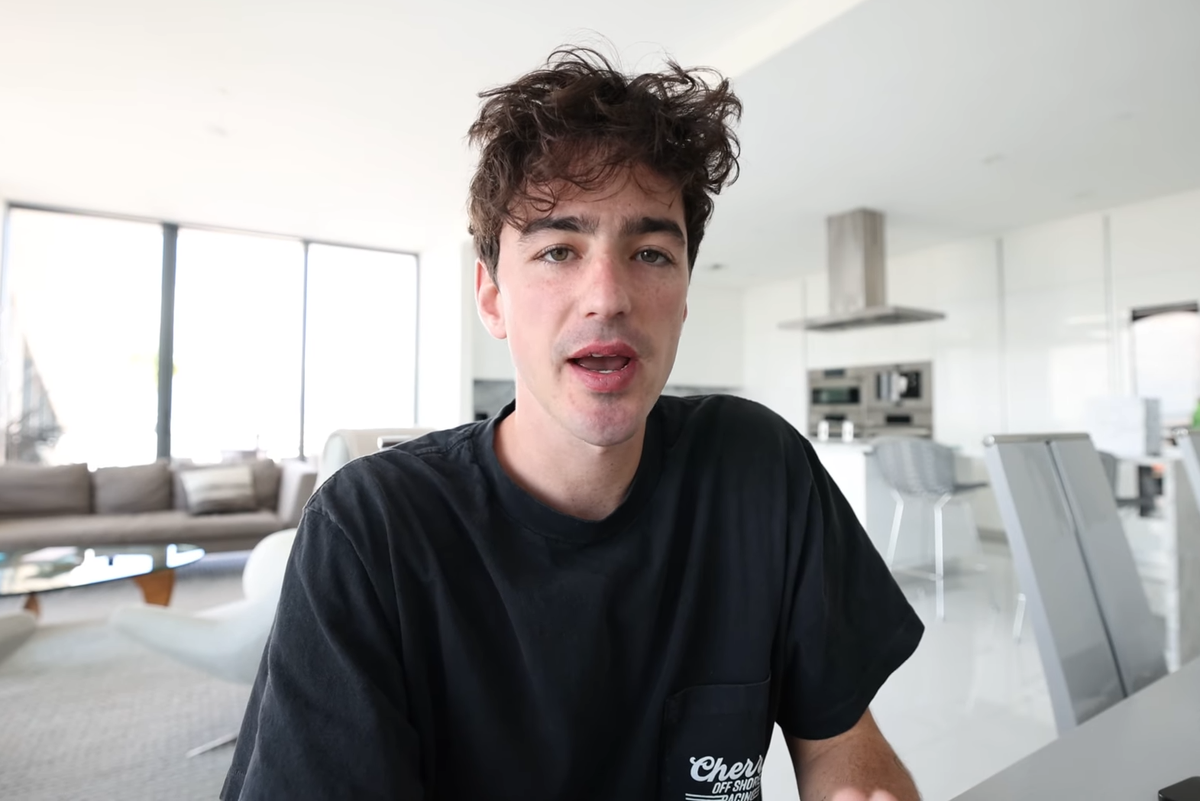Copyright scmp

In 2021, while China-born businessman Chen Zhi was building a multibillion-dollar empire now enmeshed in multiple criminal allegations, staff at his family office in Singapore ran into seemingly minor technical glitches. At first, some of them struggled to connect to the office copier. Days later, the door badges stopped working. After they regained access, staffers quickly realised they had a much bigger problem: millions of dollars had been siphoned from Chen’s bank accounts. While the founder and chairman of Cambodian conglomerate Prince Holding Group is now accused of running a global business empire built on enslavement, sextortion and “pig-butchering” scams, for years Chen made himself out to be a victim in Singapore. Several lawsuits his family office filed between 2021 and 2022 against former executive David Wong said he “misappropriated” S$5.84 million (US$4.5 million) of Chen’s money from an Oversea-Chinese Banking Corporation account. Wong had been sole director of Chen’s family firm before his dismissal in July 2021, according to court filings. More than 80 case documents filed in relation to the legal battle provide an unparalleled picture of the extensive banking network Chen built in Singapore and how he gained tax breaks from the country’s regulators. They also reveal the sometimes mundane bureaucracy involved in running his family office. Together, they shed light on how an individual accused by US authorities of being a criminal “mastermind” operated openly in Singapore for years. In one email chain, staff discussed reports sent to the Monetary Authority of Singapore to maintain government tax breaks before switching gears to provide an update on plans to airlift 388kg of whisky from the Geneva Freeport to a bonded warehouse in Singapore. “He has tried the Switzerland whisky,” Wong wrote, describing Chen’s reaction after the transfer was complete. “All is great.” Chen, now 37, was already rich when he first met Wong in mid-2017. Chen wanted to invest more in Singapore, with a view to obtaining permanent residency, according to Wong’s affidavit. Both men worked fast – that same year alone, public records show Chen spent nearly S$40 million on luxury properties. By 2018 Wong, a Singapore citizen, had met and filed enough documentation with banks, the Economic Development Board and the Monetary Authority of Singapore to establish a family office named DW Capital Holdings. Chen was eventually granted a tax exemption. The next few years were good for Chen, according to public records and people familiar with his lifestyle who asked for anonymity to speak candidly about his affairs. His conglomerate expanded globally and he owned several Toyota Alphards and Mercedes-Maybach limousines in Singapore and other countries. A frequent guest at his Singapore gatherings noted Chen’s penchant for expensive Chinese tea – a single brick could cost over US$100,000 – and said he often sported a Richard Mille or a Patek Philippe watch. Meanwhile, Wong hired a team and created several entities for his boss. The filings mention more than half a dozen banking and financial services relationships: from the OCBC account and the lender’s Bank of Singapore private banking arm to Bank J. Safra Sarasin, Deutsche Bank, Malayan Banking and UOB-Kay Hian Holdings. The MAS, UOB-Kay Hian, Maybank and Safra Sarasin did not respond to emailed questions. Deutsche Bank declined to comment, as did the EDB, citing ongoing police investigations. OCBC said it takes anti-money-laundering laws and regulations very seriously. “Once suspicious transactions are detected in bank accounts, appropriate actions will be promptly taken including reporting the cases to the relevant authorities,” a spokesperson said. Wong’s flagship effort was CMFO, which said it served ultra-wealthy families from Asia while developing businesses like tech and real estate companies. He also did forex trading and bond purchases, and had power of attorney and signatory status for several accounts, filings show. Chen eventually decided to change his family office operations. On May 31, 2021, Wong was called to a meeting of Chen’s senior Singapore staff at the “Club House”, in a luxury condominium called Le Nouvel Ardmore, according to a filing. The four-bedroom suite that records show cost S$16.2 million in 2017 was converted into a gilded den for business; a jacuzzi and panoramic views of the city sit alongside areas dedicated to karaoke and cigars, people familiar with the venue said. According to the filings, a consolidation was coming. An audit team led by Karen Chen Xiuling needed access to key documents and management accounts for the operations Wong oversaw. They sought the files Wong gave authorities and the Bank of Singapore to show that Chen’s riches were legitimate, including a two-page “source of wealth” deck written by Wong himself. As part of the plans, one of Chen’s key vehicles, Skyline Investment Management, aimed to share space with the family office at Duo Tower, an office complex in the downtown area. Towards the end of June, with several documents still outstanding, the auditor’s questions became more pointed. Some of the entities run by Wong and owned by Chen seemed to be paying each other, including $535,209 in management fees, Karen Chen said in an affidavit. On a visit to the office ahead of the move, she found spaces cluttered with boxes and detritus. Pictures taken on June 23 show countless cartons of Lubuski gin – an affordable tipple from Poland – and display shelves near boxes filled with wine bottles. Wong, meanwhile, was on medical leave for various ailments and became harder to contact, her affidavit showed. Neither Wong nor Karen Chen responded to questions sent via text message and other means. Most of Skyline’s move into the Duo Tower went smoothly, but none of the team could get the photocopier to work properly and had to seek out Wong’s tech team. Chen’s auditors also realised that several other businesses had been using the family office location as their address. The turning point came one evening when Wong explained some of the entities Karen Chen had identified were his personal projects. The alcohol, meanwhile, belonged to him and was off limits. Suddenly, what had been cordial exchanges of questions and well wishes devolved into blunt, all-caps demands and bold text. “DO NOT MOVE ANY items (including personal items and digital items) out of Duo Office before we receive any bank statements, financials or assets listing from you for assessment and stocktake,” she wrote to a group that included Chen Zhi’s personal assistant. “Team meeting next Monday (5 July 2021), 11am at Duo office, please attend. Thank you. Best regards.” That Monday, as Chen Zhi’s staff tried to badge into Duo Tower to reach their 10th-floor office, the lobby gantries remained shut. Building management said the passes had been blocked and that only staff from Wong’s CMFO could activate them. Karen Chen was outraged, calling it “quite preposterous”. Wong was removed as sole director the next day but the doors remained locked. When Chen’s auditors visited the OCBC branch to get detailed transaction records, they were refused. The monthly statements they could view showed millions of dollars transferred in and out over a period of years, some to names that sounded similar to Wong’s personal companies – all without Chen Zhi’s knowledge, according to Karen Chen. His account manager at UOB-Kay Hian also flagged that Wong had been stopped weeks earlier trying to transfer funds into his own bank account. By the time the auditors regained access to the office on July 12, the space was near-empty. What had been a hive of activity was little more than bare fridges, discarded laptop bags and disconnected printers, according to a video transcript submitted in evidence. The cheap Polish gin was gone. Over the next few years, Chen’s team in Singapore pursued Wong relentlessly through the legal system to recover the accounts and money. In a 2021 affidavit, Wong, now 55, denied running the family office in an inept manner or making unauthorised transactions. He also denied taking the documents out of the office and that Chen Zhi was aware he was scheduled for medical leave and therefore busy wrapping up other tasks. In any case, other key documents were available through record searches or from the external accounting provider, he said. After that, Wong stayed largely mum and missed numerous court dates. He submitted several medical certificates to prove his ailments. In December 2022, Singapore’s High Court issued a “default judgment” against Wong that left him and his associated companies on the hook for more than S$12 million. Wong has filed for bankruptcy. Still, Wong might get the last laugh. His former boss and Karen Chen were among 18 individuals sanctioned by the US. Singaporean authorities have moved against Chen and his Prince Group, seizing more than S$150 million in assets, including a yacht and 11 cars. The government has ceased providing tax incentives to two family offices linked to Chen’s Prince Group, a minister said this week. When Bloomberg News visited Chen’s Singapore family office on Tuesday, the doors were locked and the lights switched off. His whereabouts are unknown.



